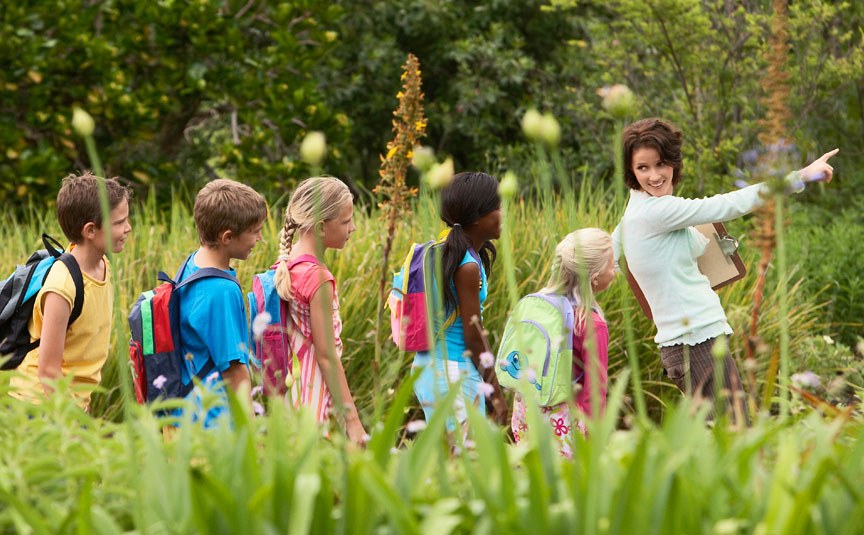

In recent years, a remarkable shift has been observed in the realm of education, with nature-based schools and outdoor-based learning environments gaining traction and popularity. These innovative educational models offer a refreshing approach that emphasizes the profound connection between children and the natural world. From forest schools to outdoor-based programs, and even nature-centric curricula integrated into traditional K-12 education, the benefits are as vast as the landscapes they inhabit.
Nature-based schools, often nestled amidst lush greenery or situated in forested areas, provide children with immersive experiences in nature from an early age. These schools are not just about academic learning; they foster a deep sense of appreciation and stewardship for the environment. Children in these settings are encouraged to explore, discover, and engage with the natural world, which serves as their primary classroom
 Forest schools, specifically tailored for children aged 3-6, have been at the forefront of this movement. They offer a holistic approach to education, where outdoor play and exploration are central to the learning experience. From building shelters to identifying plants and animals, children develop essential motor skills, balance, coordination, and a keen sense of curiosity about the world around them.
Forest schools, specifically tailored for children aged 3-6, have been at the forefront of this movement. They offer a holistic approach to education, where outdoor play and exploration are central to the learning experience. From building shelters to identifying plants and animals, children develop essential motor skills, balance, coordination, and a keen sense of curiosity about the world around them.
Moreover, the benefits extend beyond physical development. Nature-based education has been shown to enhance social-emotional well-being. As children collaborate on outdoor projects, navigate natural obstacles, and engage in imaginative play, they learn valuable lessons in teamwork, communication, and resilience. The open-ended nature of outdoor exploration nurtures creativity and problem-solving skills, empowering children to think critically and adapt to new situations.
 One of the remarkable aspects of nature-based education is its inclusivity. While forest schools traditionally cater to preschool-aged children, there has been a notable expansion to include programs for infants, toddlers, and their caregivers. Additionally, many nature-based and outdoor schools now offer comprehensive K-12 programs, providing a continuum of experiential learning throughout a child’s academic journey.
One of the remarkable aspects of nature-based education is its inclusivity. While forest schools traditionally cater to preschool-aged children, there has been a notable expansion to include programs for infants, toddlers, and their caregivers. Additionally, many nature-based and outdoor schools now offer comprehensive K-12 programs, providing a continuum of experiential learning throughout a child’s academic journey.
As we delve deeper into the benefits of nature-based education, it’s evident that the advantages extend beyond the individual child. Immersion in natural settings has been linked to improved immunity and overall health, as children are exposed to diverse microorganisms present in outdoor environments. Furthermore, fostering a deep connection with nature from a young age instills a sense of environmental stewardship, nurturing future generations of conservationists and advocates for sustainability.
 In conclusion, the rise of nature-based schools and outdoor-based education represents a transformative shift in how we perceive learning environments. By embracing the natural world as a fundamental aspect of education, we not only cultivate well-rounded individuals but also inspire a profound sense of wonder and respect for the planet we call home. As these innovative models continue to gain momentum, they offer a compelling vision for the future of education—one that is rooted in nature, enriched by experience, and boundless in its possibilities.
In conclusion, the rise of nature-based schools and outdoor-based education represents a transformative shift in how we perceive learning environments. By embracing the natural world as a fundamental aspect of education, we not only cultivate well-rounded individuals but also inspire a profound sense of wonder and respect for the planet we call home. As these innovative models continue to gain momentum, they offer a compelling vision for the future of education—one that is rooted in nature, enriched by experience, and boundless in its possibilities.





